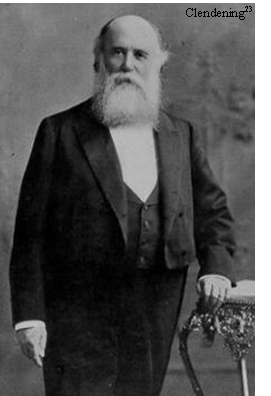John Alexander Dowie
His two cardinal doctrines are valid, but they are not without criticism. The first doctrine, that Jesus is the same yesterday today and forever is not refutable. This is the stronger of his two doctrines. Some Pentecostals and Charismatics want to claim the gift of healing as the reason for their healing ministry. While this can be true, it can often cause some theologically confusion. If a minister has the gift of healing, then would not the minister be able to heal all people at all times? Practical ministry attests that no minister can claim that all are healed. Even in Jesus’ ministry, not all were healed. If the gift of healing is to be claimed, it is much more clear to state that this gift is often manifested by the Spirit, but it is as He wills. Dowie’s theology is better yet. It places the focus on the Lord as the one who heals. This also keeps the sick person’s attention on the Healer and not the instrument.
 Dowie’s second doctrine, that sickness is evil, an effect of sin and a work of the Devil, is plausible, but Dowie goes far to the extreme. I concede that sickness is a result of sin, and that it is a work of the Devil. However, Dowie states that it is impossible for God to cause sickness to come on anyone. To say that God cannot do anything is to take away from his sovereignty. Dowie comes to this conclusion based on his “Two Chain” diagram. He links sickness under the evil chain on the same level as sin. Sickness and sin are not completely comparable. Sin hinders relationship with God, while sickness does not. Granted, sickness is a result of sin, but the two are not the same. Thus, it is still plausible that God could allow some one to remain sick for a higher purpose.
Dowie’s second doctrine, that sickness is evil, an effect of sin and a work of the Devil, is plausible, but Dowie goes far to the extreme. I concede that sickness is a result of sin, and that it is a work of the Devil. However, Dowie states that it is impossible for God to cause sickness to come on anyone. To say that God cannot do anything is to take away from his sovereignty. Dowie comes to this conclusion based on his “Two Chain” diagram. He links sickness under the evil chain on the same level as sin. Sickness and sin are not completely comparable. Sin hinders relationship with God, while sickness does not. Granted, sickness is a result of sin, but the two are not the same. Thus, it is still plausible that God could allow some one to remain sick for a higher purpose.
Furthermore, the distinction between what God causes and what God permits is not completely clear. Is there a difference between the two? Assume a father is beating his child. This would be a travesty. Is it any worse if he stands by and permits his child to be beaten? Theologically, what God causes and what he permits still would communicate the same about his character. However, the distinction is clear in the context of our human response to our circumstances. If we believe God caused a situation, it is futile to resist. Yet, if we know that God is allowing a situation, but not causing it, then we are right in fighting it. Perhaps we should understand sickness as part of the rebellion against the will of God, and not His determined will. We would then be correct in fighting sickness. If God is permitting it, this does not imply that it is His will. This does no harm to God’s sovereignty.
Category: Church History, Winter 2006


